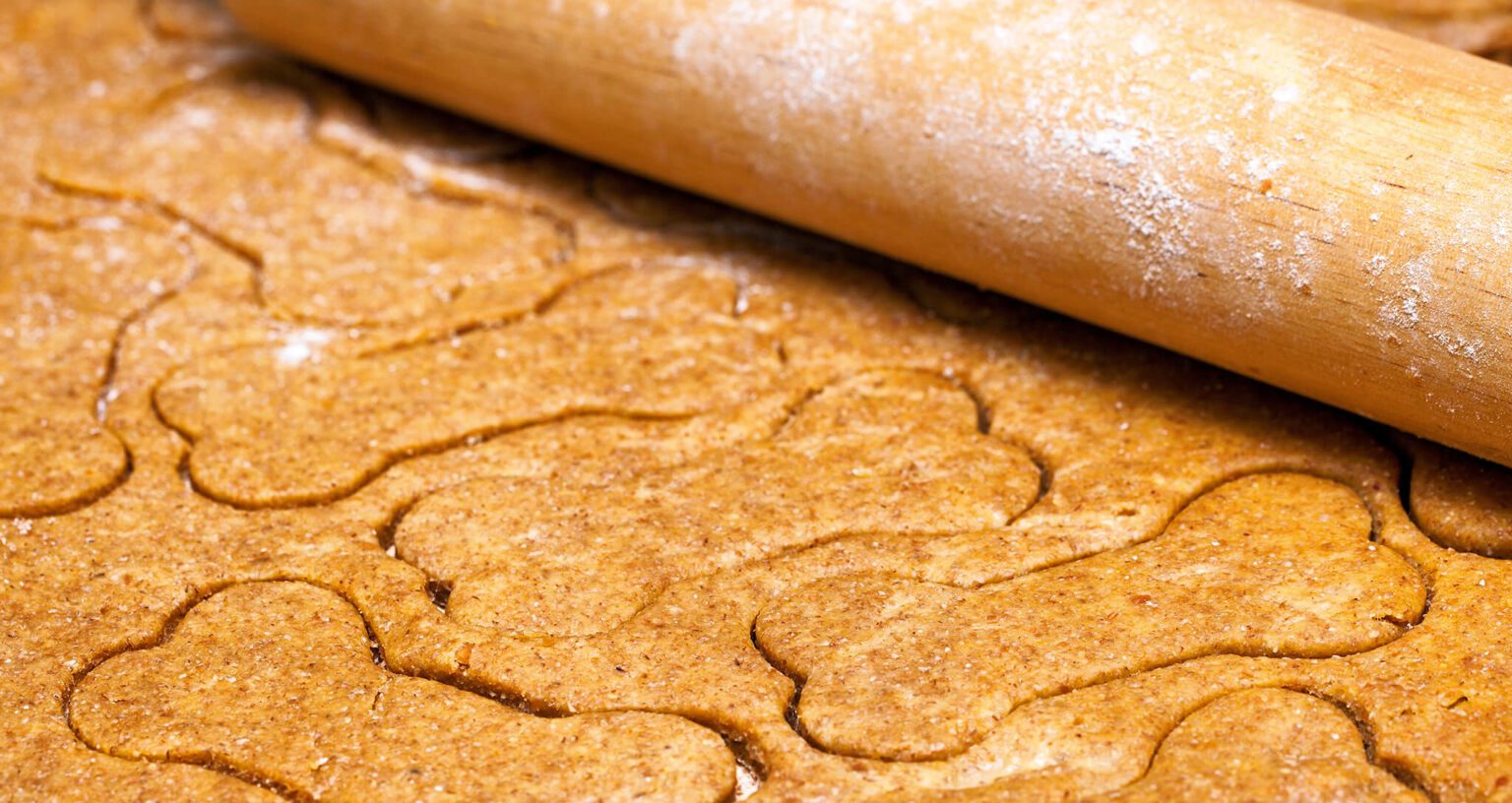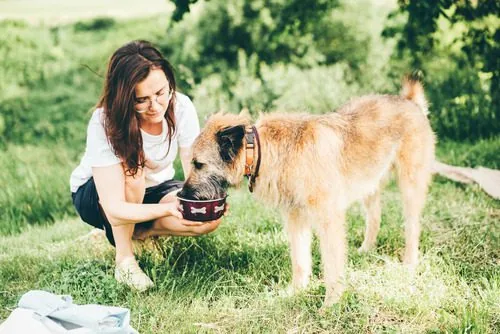How to Make Dog Treats at Home: A Step-by-Step Guide
Welcome to the Boughton Square Animal Clinic blog! Today, we’re excited to share with you a fun and engaging way to bond with your dog: making dog treats at home. This step-by-step guide will help you create tasty and healthy treats that your dog will love. If you have any questions or need more pet care tips, feel free to contact us at Boughton Square Animal Clinic in Bolingbrook, Illinois, at (630) 759-0093.

The Benefits of Homemade Dog Treats
Homemade dog treats offer numerous advantages over their store-bought counterparts. One of the primary benefits is the ability to select high-quality, nutritious ingredients. By making treats at home, you ensure they’re free from unwanted additives and preservatives commonly found in commercial products. This is particularly beneficial for dogs with sensitive stomachs or food allergies, as you can tailor the treats to avoid ingredients that might cause them discomfort.
Another key advantage is the cost-effectiveness. Preparing treats at home can be significantly cheaper than purchasing premium dog treats from the store. Moreover, it’s an environmentally friendly option, reducing packaging waste.
Additionally, the process of making dog treats can be a therapeutic and bonding experience for you and your pet. It offers a creative outlet and a sense of accomplishment, especially when you see your dog enjoying the fruits of your labor.
Choosing the Right Ingredients
When selecting ingredients for your homemade dog treats, it’s essential to choose safe and healthy options. Avoid foods that are harmful to dogs, like chocolate, grapes, and onions. Instead, opt for dog-friendly ingredients such as lean meats, carrots, pumpkin, apples (without seeds), and peanut butter (without xylitol). If you’re unsure about an ingredient, a quick call to our clinic can provide the answer.
Simple Recipes to Start
Let’s start with a few simple recipes. One popular option is peanut butter and pumpkin dog treats. You’ll need whole wheat flour, eggs, canned pumpkin, and peanut butter. Another easy recipe is chicken and rice dog treats, using cooked chicken, rice, and an egg. These recipes are not only easy to make but also provide essential nutrients for your dog.
Customizing Treats for Your Dog
Customizing homemade dog treats according to your dog’s specific dietary requirements and preferences is a significant benefit of home preparation. For instance, if your dog is prone to gaining weight, you can create low-calorie treats using ingredients like lean meats, pumpkin, or certain fruits and vegetables.
For dogs with specific health issues, like joint problems, you can incorporate ingredients known for their beneficial properties, such as glucosamine-rich foods or omega-3 fatty acids, which can be found in certain fish. However, it’s essential to consult with a veterinarian before adding any supplements to ensure they’re safe and appropriate for your dog’s individual health needs.
Moreover, you can adjust the size and hardness of the treats to accommodate your dog’s size, age, and dental health. For senior dogs or those with dental issues, softer treats might be more suitable.
Baking and Storage Tips
When baking dog treats, make sure they are cooked thoroughly to avoid any foodborne illnesses. Cool them completely before serving. For storage, keep them in an airtight container. Most homemade dog treats can last about a week at room temperature or can be frozen for longer storage.
Adding a Personal Touch
Using cookie cutters, you can create treats in fun shapes like bones or hearts. This personal touch can make treat time even more special. Remember, the size of the treat should be appropriate for your dog’s size.
Exploring Advanced Recipes
Once you’re comfortable with basic recipes, you can explore more advanced options. For example, you could try making dehydrated meat treats or even bake special birthday cakes for dogs. These advanced recipes can provide a delightful variety for your pet.
Treats as Rewards and Training Tools
Homemade dog treats are excellent for training or as special rewards. They can reinforce positive behavior and make training sessions more enjoyable. Plus, the fact that you made them adds an extra layer of love to each reward.
When to Avoid Homemade Treats
While homemade dog treats are a wonderful way to pamper your pet, there are circumstances where they might not be the best choice. Dogs with serious health conditions, such as diabetes, kidney disease, or food intolerances, require a very specific diet to manage their health. In these cases, homemade treats, even those made with the best intentions, could unintentionally exacerbate their condition.
For pets on a strict therapeutic diet, introducing new foods, even in small amounts as treats, can interfere with the effectiveness of their diet. It’s essential to consult your veterinarian before adding any homemade treats to the diet of a dog with health issues.
Additionally, certain ingredients that are harmless to humans can be toxic to dogs. It’s crucial to have a thorough understanding of which foods are safe for canine consumption and which are not. Examples of common household foods that should be avoided in dog treats include chocolate, grapes, raisins, onions, garlic, and xylitol, a sweetener found in many sugar-free products.
Remember, the team at Boughton Square Animal Clinic is always available to provide guidance on the best dietary choices for your dog, especially if they have specific health concerns. Feel free to reach out to us at (630) 759-0093 for personalized advice.
Boughton Square Animal Clinic is Here to Help
Making dog treats at home is a delightful way to show your dog some extra love. It’s a fun, cost-effective, and healthy way to treat your pet. Remember, if you have any concerns or questions about your dog’s diet, the team at Boughton Square Animal Clinic is just a phone call away at (630) 759-0093. Enjoy baking and watching your dog delight in these homemade treats!
Recent Posts
6 Possible Causes for Your Cat’s Sneezing
6 Possible Causes for Your Cat’s Sneezing Cats are known for their curious and playful nature, but…
Why is My Dog Eating Grass?
Why is My Dog Eating Grass? Dogs are known for their curious behaviors, and one that often…
Can Dogs Eat Marshmallows?
Can Dogs Eat Marshmallows? Marshmallows are a popular treat for many people, but pet owners often wonder,…
Can Dogs Get Sunburn?
Can Dogs Get Sunburn? As summer approaches and the days get longer, many pet owners look forward…
Dog Dehydration: Symptoms, Treatment and Prevention
Dog Dehydration: Symptoms, Treatment and Prevention Dehydration in dogs is a common but often overlooked condition that…
About Boughton Square Animal Clinic
Since 1979, Boughton Square Animal Clinic has served Bolingbrook, IL and surrounding communities as both a veterinary care provider and a devoted partner in treating your animal family members for life.






